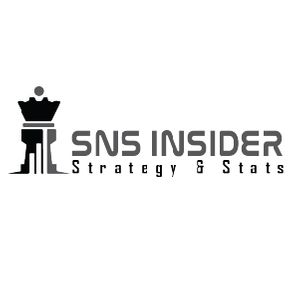
High-frequency Trading Server Market Scope & Overview
As per the SNS Insider report, the High-frequency Trading Server Market reached a valuation of USD 405.2 million in 2022. It is projected to expand to USD 541.87 million by 2030, exhibiting a CAGR of 3.7% during the forecast period spanning from 2023 to 2030.
The High-Frequency Trading Server, often referred to as an HFT server, is a specialized computing system designed to execute trades at an incredibly rapid pace, measured in milliseconds or even microseconds. The HFT server’s unmatched speed enables it to capitalize on even the slightest price discrepancies across various markets and securities, thereby generating profits through high-speed, high-volume trading.
Market Analysis
The high-frequency trading server market has undergone rapid evolution in recent years, driven by technological advancements and shifting market dynamics. Quantum computing, with its potential to perform complex calculations at speeds unattainable by classical computers, has emerged as a novel growth driver for the market. As quantum technologies become more accessible, their integration into HFT servers could provide a competitive edge to firms looking to stay ahead in the race for microseconds. With the rising frequency of cyberattacks targeting financial institutions, robust cybersecurity measures have become imperative for HFT firms. As a growth driver, the focus on cybersecurity is pushing the development of cutting-edge technologies that safeguard trading servers and data from malicious threats. HFT firms that can assure their clients of a secure trading environment are likely to attract more business in an increasingly security-conscious landscape.
Get Free Sample Report of High-frequency Trading Server Market @ https://www.snsinsider.com/sample-request/2947
Key Players Covered in High-frequency Trading Server market report are:
ASA Computers, Inc., Blackcore Technologies, Hypertec, Dell, HP Enterprise Development LP, Hypershark Technologies, Lenovo, Penguin Computing, Super Micro Computer, Inc., Tyrone Systems, XENON Systems Pty Ltd., and others are listed in the final report.
Impact of Recession
The high-frequency trading server market, like other segments of the financial industry, is not immune to the influence of economic recessions. Reduced trading activity, capital constraints, and shifts in strategies can all impact the demand for high-frequency trading servers. However, it’s important to note that the impact of a recession can vary based on the severity and duration of the economic downturn, as well as the adaptive strategies adopted by HFT firms. The intersection of technological innovation, market dynamics, and economic cycles will continue to shape the market’s trajectory in both challenging and opportune times.
Segmentation Analysis
The Equity Trading Segment, encompassing the buying and selling of company stocks, has become a focal point for high-frequency trading strategies. Enabled by cutting-edge technologies, traders can execute orders in a matter of microseconds, exploiting minuscule price differentials for gains. Similarly, the Other Derivatives Segment, dealing with financial instruments derived from underlying assets, has witnessed an upsurge in high-frequency trading activities. Derivatives such as options and futures offer traders a diverse array of strategic possibilities, from hedging risks to speculative plays.
High-frequency Trading Server Market Segmentation as Follows:
By Processor
X-86-based
ARM-based
Non-x86-based (MIPS, Imagination)
By Form Factor
1U
2U
4U
Others (3U, 5U, 6U, 7U)
By Application
Equity Trading
Forex Markets
Commodity Markets
Others (Bonds and Other Derivatives)
Segmented by Region/Country:
North America
Europe
China
Japan
Asia Other
Get Free Quarterly Updates. Click on the link to enquire more @ https://www.snsinsider.com/enquiry/2947
Regional Status & Analysis
The high-frequency trading server market is a dynamic landscape shaped by regional nuances and factors. While North America remains the pioneer, Europe navigates regulatory intricacies, and Asia-Pacific emerges as a potent force. The rest of the world presents untapped potential, awaiting economic growth and technological advancements. As the global financial ecosystem continues to evolve, the role of HFT servers will remain pivotal, ensuring that the market’s dynamics adapt to the ever-changing landscape of finance.
Conclusion
The future of the high-frequency trading server market is shaped by a convergence of technological advancements, regulatory changes, and evolving market dynamics. To succeed in this competitive landscape, firms will need to continually innovate, adapt to emerging trends, and strike a balance between speed, efficiency, and compliance. As HFT strategies become more sophisticated, the demand for high-performance servers capable of executing these strategies will likely continue to grow, driving further innovation in the field.
Table of Content – Analysis of Key Points
1. Introduction
2. Research Methodology
3. Market Dynamics
4. Impact Analysis
4.1 COVID-19 Impact Analysis
4.2 Impact of Ukraine- Russia war
4.3 Impact of ongoing Recession on Major Economies
5. Value Chain Analysis
6. Porter’s 5 forces model
7. PEST Analysis
8. High-frequency Trading Server Market Segmentation, By Processor
9. High-frequency Trading Server Market Segmentation, By Form Factor
10. High-frequency Trading Server Market Segmentation, By Application
11. Regional Analysis
12. Company Profiles
13. Competitive Landscape
14. Conclusion
Buy Single User PDF @ https://www.snsinsider.com/checkout/2947
Frequently Asked Questions
Q1. What is the projected outlook for high-frequency trading server market growth?
ANS: The global market to cross USD 541.87 million by 2030, exhibiting a CAGR of 3.7% during the forecast period spanning from 2023 to 2030.
Q2. What are the major factors influencing the high-frequency trading server market?
ANS: Quantum computing, AI-driven analytics, RegTech innovations, alternative data, cybersecurity measures, and the interplay with DeFi are among the emerging forces propelling this market forward.
Q3. Who are the leading players in the high-frequency trading server market?
ANS: ASA Computers, Inc., HP Enterprise Development LP, Blackcore Technologies, Hypertec, Dell, Hypershark Technologies, Lenovo, Super Micro Computer, Inc., Tyrone Systems.